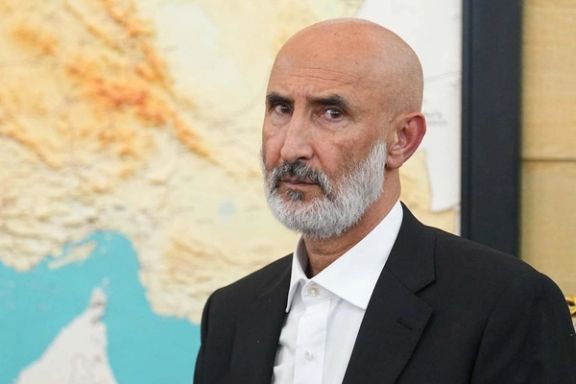Iranians Condemn Sweden's Release of Convicted War Criminal

Sweden's release of Hamid Nouri, a former Iranian official convicted of war crimes, in a prisoner exchange with the Islamic Republic, has sparked widespread backlash and public protests.

Sweden's release of Hamid Nouri, a former Iranian official convicted of war crimes, in a prisoner exchange with the Islamic Republic, has sparked widespread backlash and public protests.
Adding to the public outrage is the fact that Sweden left behind Ahmadreza Jalali, an Iranian-Swedish scientist sentenced to death in Iran after a sham trial lacking due process. In exchange for Nouri, Iran released two other de facto hostages.
Immediately after the news broke on Saturday, Iranians in Sweden converged outside the foreign ministry in Stockholm to voice their indignation, including Djalali's wife Vida Mehrannia. The gathering underscored a broader international reaction that casts a shadow over Sweden's prisoner exchange with Iran.
Prominent Iranian opposition figure Prince Reza Pahlavi criticized the Swedish Prime Minister's decision to release Hamid Nouri, calling it "an affront to the rule of law, human rights, and basic decency." He condemned the move as "feckless appeasement" of Iran's criminal regime, arguing that it failed to save all hostages and would only encourage more hostage-taking and blackmail.
Alireza Akhondi, a Swedish politician from the Center Party, criticized the Swedish Prime Minister's government as "irresponsible" for "abandoning Ahmadreza Djalali." Akhondi described the release of Nouri as an "insult to Sweden's judicial system" and a "cruel blow" to Djalali's family. He suggested that the timing of the prisoner swap was deliberately delayed until after the European Parliament elections to avoid losing votes.
Hamed Esmaeilion, a prominent Canadian Iranian activist and representative of the Association of Families of Flight PS752 Victims, condemned the exchange as a "shameful stain" on Sweden, labeling it as complicity with a regime known for its hostage-taking tactics. "Today justice has been trampled upon," Esmaeilion expressed on social media, highlighting the emotional toll on families affected by Nouri's past atrocities.
In 2022, a Swedish court sentenced Nouri to life imprisonment following his conviction of war crimes for his role in the mass execution of political prisoners in Iran in 1988. Nouri served as the deputy prosecutor of Gohardasht prison in Karaj city near Tehran in 1988, according to the Swedish court. He was arrested at Stockholm airport in 2019 during his visit to Sweden, under the principle of universal jurisdiction.
Iranian Nobel laureate Shirin Ebadi echoed similar sentiments, criticizing the move as detrimental to the cause of justice.
Journalist and rights activist Masih Alinejad further emphasized that the extradition represents a betrayal of human rights.
“It is a profound betrayal of human rights and a grievous affront to the efforts of justice-seeking families from the 1980s who strive to hold these criminals accountable. This action disregards Sweden’s independent judiciary, which rightfully sentenced this criminal to life imprisonment, and emboldens and strengthens a bloodthirsty regime,” she wrote.
Athena Daemi, another human rights activist, remarked on the predictability of Nouri's release, criticizing European nations for facilitating such exchanges at the expense of standing firm against the Islamic Republic's abuses.
As Nouri returned to Iran in exchange for two Swedish citizens, EU Foreign Policy Chief Josep Borrell expressed relief over the Swedes' release while thanking Oman for its mediation.
Yet, the broader implications of this swap continue to stir controversy and debate about the ethics of negotiating with regimes accused of severe human rights violations.
Critics argue that such swaps might undermine international legal standards by effectively rewarding countries that detain foreigners on dubious grounds. The return of Nouri, in particular, raises ethical questions about the implications of negotiating with governments accused of severe human rights violations.
The United States last year released around $6 billion in Iran's frozen funds to secure the release of five dual nationals arrested on trumped-up charges and held in Iran. That arrangement raised strong public criticism about rewarding hostage taking.